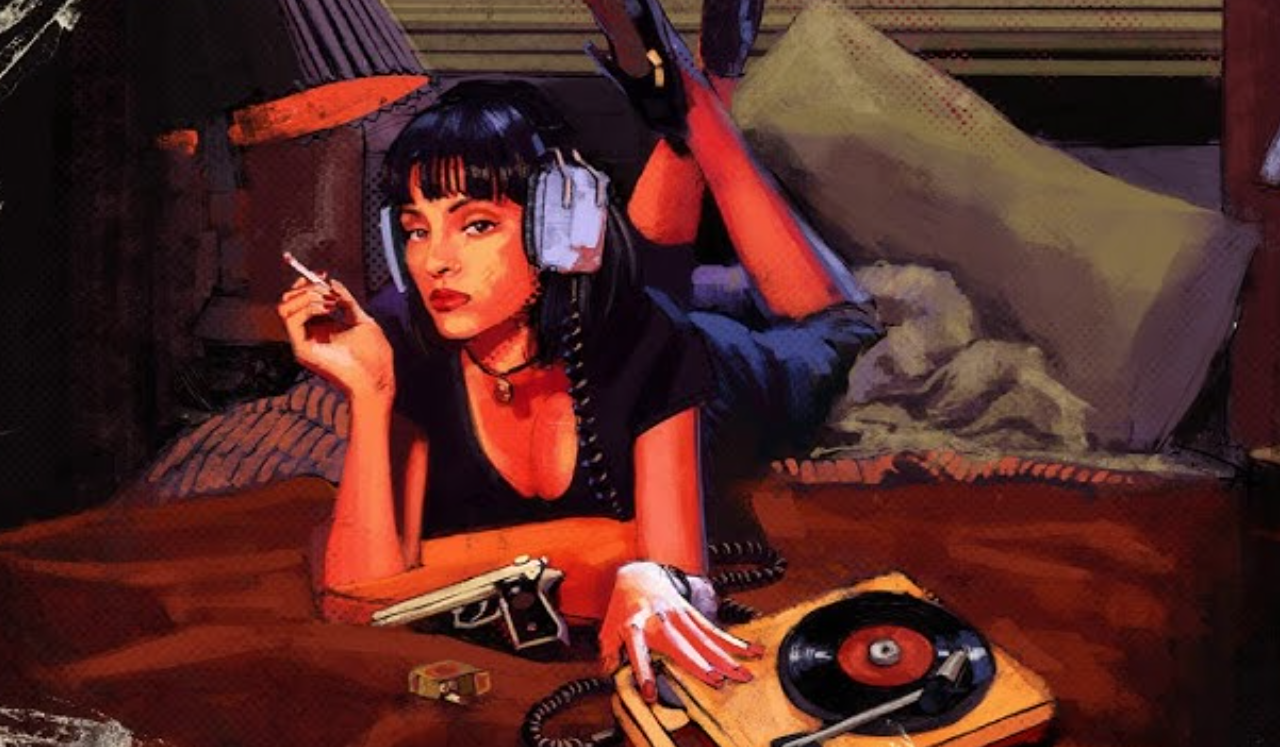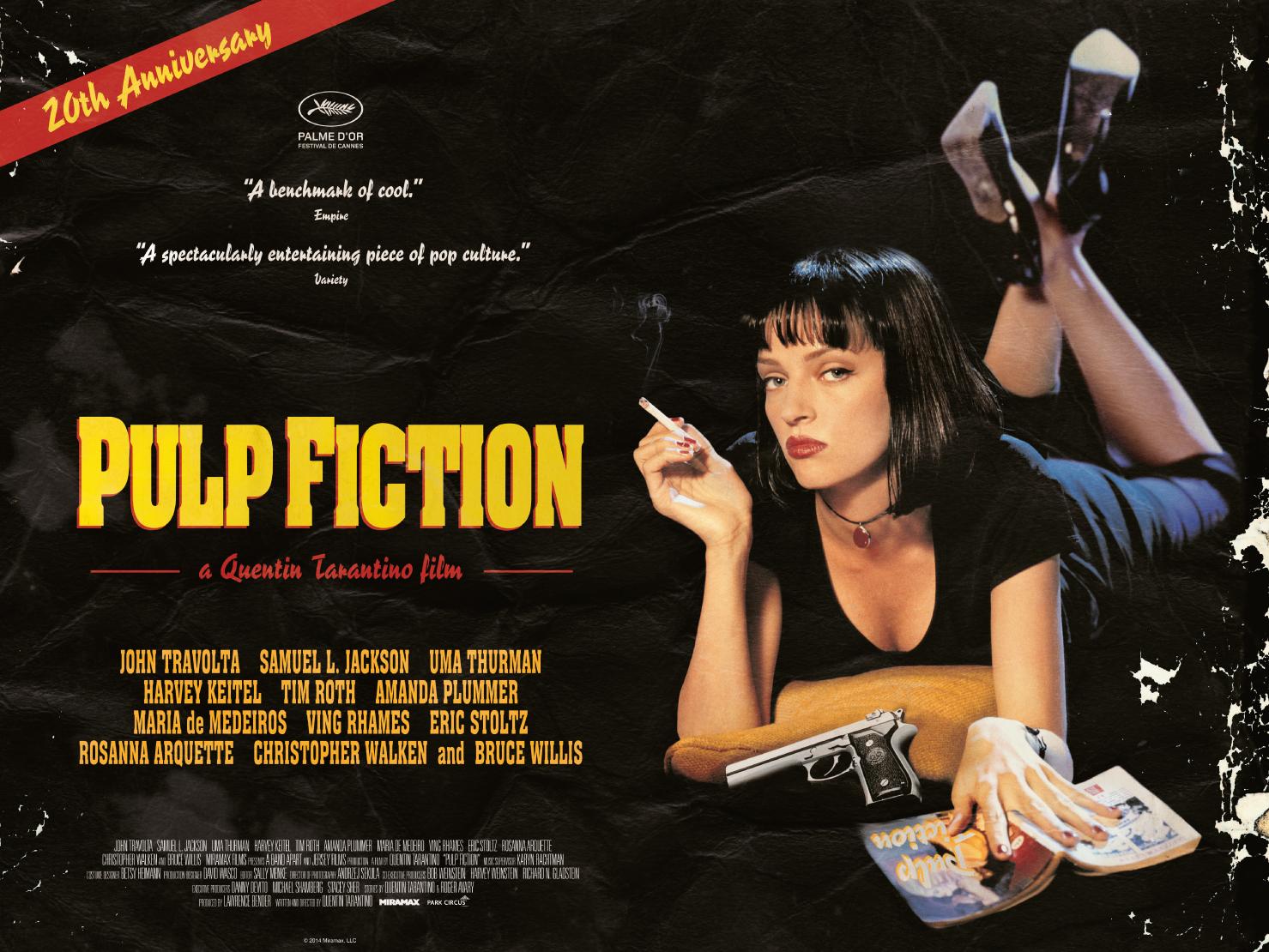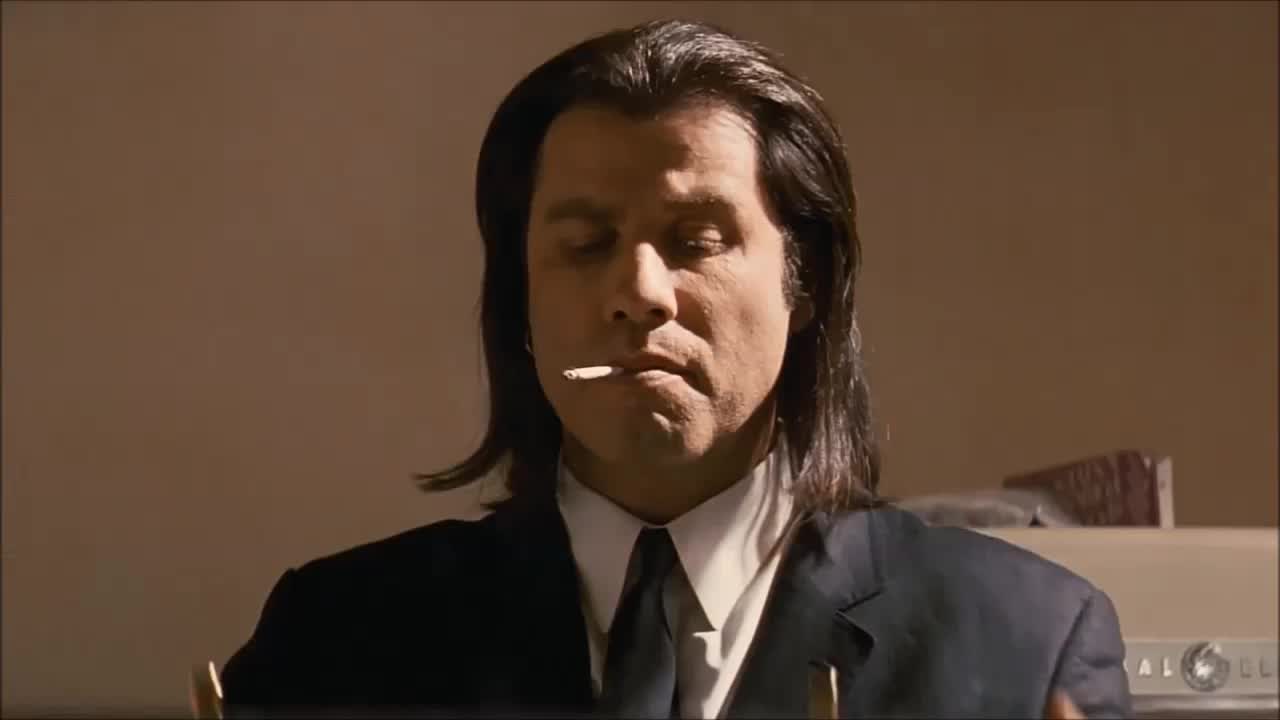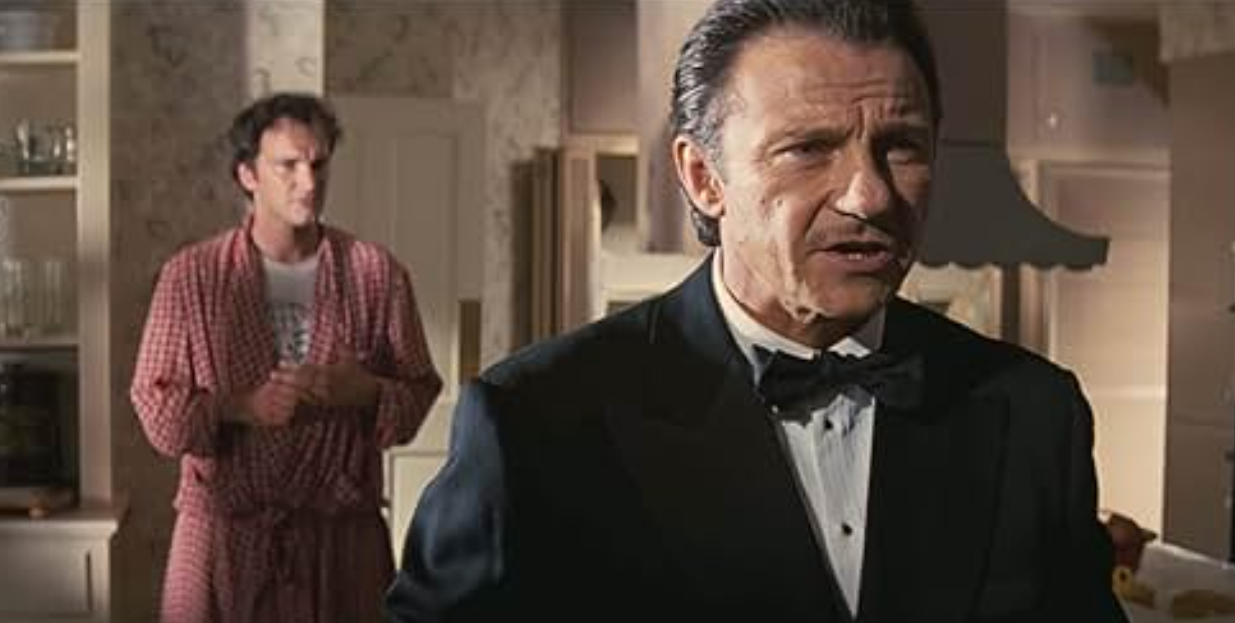🎬 Pulp Fiction (1994): A Cinematic Masterpiece of Chaos and Cool”

Introduction: Released in 1994, Pulp Fiction is an iconic film that redefined modern cinema, blending nonlinear storytelling with a mix of unforgettable characters, razor-sharp dialogue, and a soundtrack that pulses with attitude. Directed by Quentin Tarantino, this cult classic interweaves multiple plotlines about mobsters, small-time criminals, and a mysterious briefcase, all while paying homage to the pulp magazines of the mid-20th century. Its bold structure, combined with Tarantino’s trademark style, cemented Pulp Fiction as one of the most influential films of all time.
Plot Overview: Pulp Fiction masterfully juggles three main storylines that intersect in unpredictable and chaotic ways. The film opens with a diner robbery, where a couple (Tim Roth and Amanda Plummer) known as Pumpkin and Honey Bunny are planning to stick up the place. From there, the narrative jumps between different characters and events.
One of the central stories revolves around Vincent Vega (John Travolta) and Jules Winnfield (Samuel L. Jackson), two hitmen working for gangster Marsellus Wallace (Ving Rhames). They are tasked with retrieving a mysterious briefcase for their boss. Along the way, Vincent takes Marsellus’ wife Mia (Uma Thurman) out for an evening, which quickly spirals into a series of bizarre and dangerous events.
Another thread focuses on Butch Coolidge (Bruce Willis), a boxer who is double-crossing Marsellus by refusing to throw a fight as ordered. Butch’s desperate bid to escape Marsellus’ wrath leads to one of the film’s most intense and memorable scenes.

Throughout these interwoven tales, Pulp Fiction keeps the audience guessing with its non-linear storytelling, leaving us to piece together how each narrative fits into the bigger picture.
Performance and Character Dynamics: John Travolta’s portrayal of Vincent Vega revitalized his career, bringing a cool, laid-back vibe to the hitman with a touch of dark humor. Samuel L. Jackson’s role as Jules is equally iconic, his fiery delivery of biblical monologues elevating him to legendary status. Together, they create a dynamic duo whose philosophical banter about life, burgers, and divine intervention injects a unique tone into the film.
Uma Thurman’s Mia Wallace steals the screen with her enigmatic presence, delivering one of the most memorable dance scenes in cinematic history. Bruce Willis brings a gritty realism to Butch, balancing his portrayal of a hardened fighter with moments of vulnerability.
Each character in Pulp Fiction is richly developed, with motivations and quirks that give them depth and complexity. The dialogue, packed with Tarantino’s signature wit, makes even the simplest exchanges crackle with intensity.

Themes and Analysis: Pulp Fiction explores themes of redemption, fate, and the randomness of life. The nonlinear narrative structure reflects the chaotic and unpredictable nature of the world in which these characters live. One of the film’s central questions is whether there is any meaning behind the violence and absurdity that unfolds. For instance, Jules’ philosophical shift after surviving a near-death experience shows how moments of randomness can have profound personal impact.
The film also revels in pop culture references and stylish homages to various genres, from crime noir to spaghetti westerns. Tarantino plays with the conventions of genre storytelling, turning familiar tropes on their head, which is why Pulp Fiction feels so fresh and exciting, even decades after its release.
Visuals and Atmosphere: Visually, Pulp Fiction is a feast for the eyes, from its vibrant color palette to the carefully composed shots. The film has a retro aesthetic that blends 1950s diners with 1970s disco, creating a timeless yet nostalgic atmosphere. The attention to detail in the costumes, set designs, and soundtrack all contribute to the film’s distinct style.

Tarantino’s use of long, drawn-out conversations and sudden bursts of violence keeps the tension simmering throughout the film. The contrast between moments of calm and chaos gives Pulp Fiction its edge, making it as much a character-driven drama as it is an action-packed crime thriller.
Film Details:
- Title: Pulp Fiction
- Release Date: October 14, 1994
- Director: Quentin Tarantino
- Starring: John Travolta, Samuel L. Jackson, Uma Thurman, Bruce Willis, Ving Rhames
- Genre: Crime, Drama
- Runtime: 2h 34m
- Rating: R
Final Thoughts: Pulp Fiction is not just a movie—it’s a cultural phenomenon. Its impact on cinema, from the resurgence of non-linear storytelling to the reinvention of classic genres, cannot be overstated. Quentin Tarantino’s dialogue-heavy, character-driven approach brought a fresh voice to filmmaking, making Pulp Fiction one of the most quotable and beloved films in history.
For those who appreciate intricate narratives, unforgettable characters, and stylistic bravado, Pulp Fiction is essential viewing. It remains a timeless classic that continues to influence filmmakers and captivate audiences, offering a rollercoaster ride through the seedy underbelly of Los Angeles with humor, heart, and a dash of chaos.
SUGGESTED VIDEO FOR YOU:
Movie Review: BATTLEFIELD: Fall Of The World – Holy War Against Alien Hounds
Movie Review: The Killer’s Game (2024): A Deadly Contract, A Race Against Time











